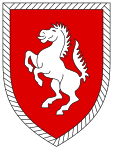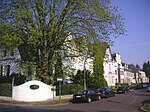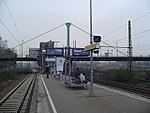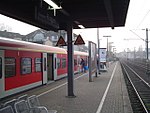Max Planck Institute for Iron Research
Materials science organizationsMax Planck Institutes

The Max-Planck-Institut für Eisenforschung GmbH (MPIE) is a research institute of the Max Planck Society located in Düsseldorf. Since 1971 it is legally independent and organized in the form of a GmbH, owned and financed equally by the Max Planck Society and the Steel Institute VDEh. It conducts basic research on advanced materials, specifically steels and related metallic alloys.
Excerpt from the Wikipedia article Max Planck Institute for Iron Research (License: CC BY-SA 3.0, Authors, Images).Max Planck Institute for Iron Research
Sohnstraße, Dusseldorf Düsseltal (Stadtbezirk 2)
Geographical coordinates (GPS) Address Nearby Places Show on map
Geographical coordinates (GPS)
| Latitude | Longitude |
|---|---|
| N 51.239166666667 ° | E 6.8144444444444 ° |
Address
Stahl Zentrum
Sohnstraße 67
40237 Dusseldorf, Düsseltal (Stadtbezirk 2)
North Rhine-Westphalia, Germany
Open on Google Maps










